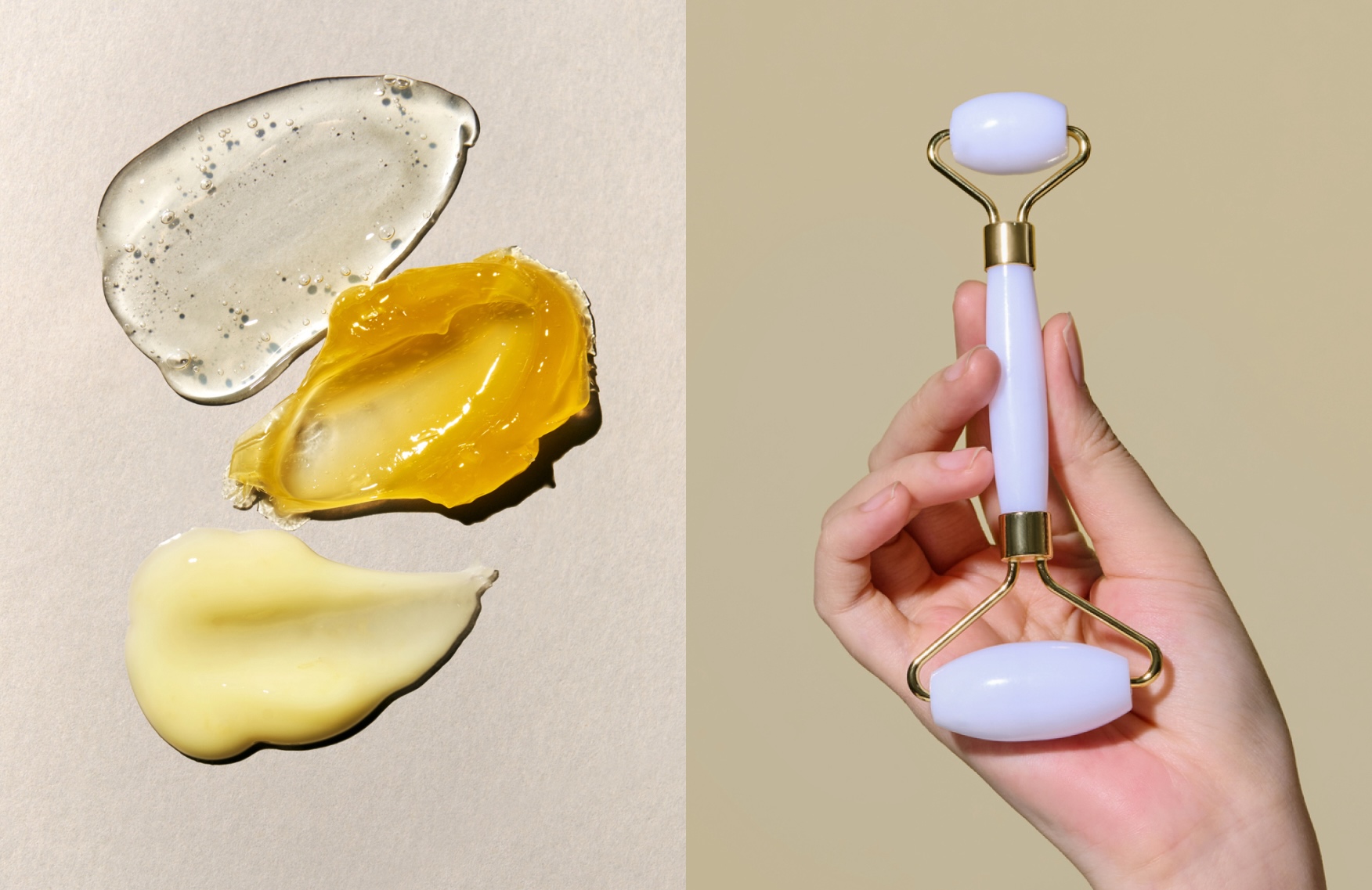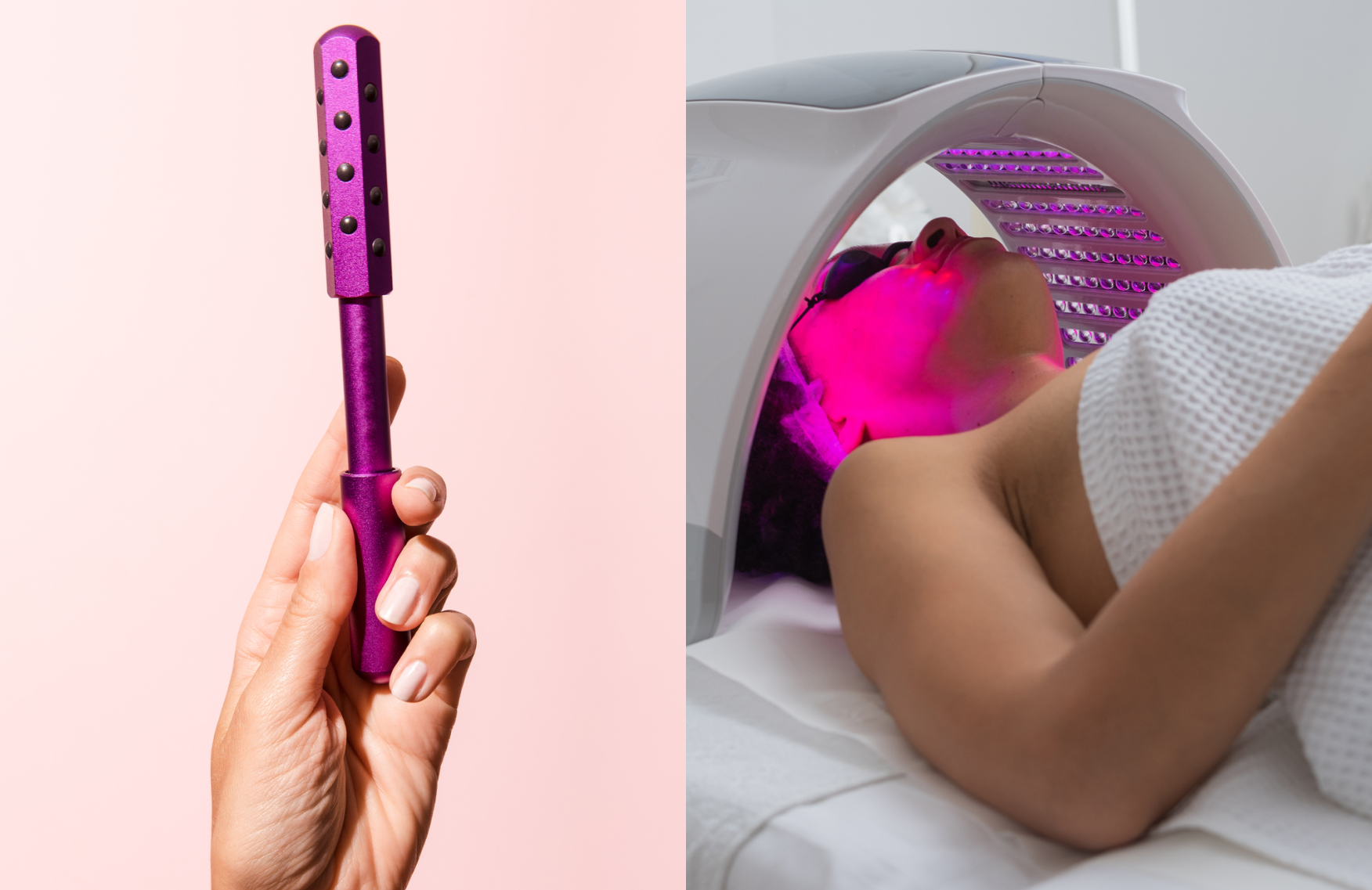Eczema explained, part 3: Acclaimed dermatologist Dr. Howard Murad reveals the truth about eczema flare-ups and their link to fragrances, fabrics and feelings

The physical manifestation of eczema might be obvious, but its causes aren’t always as clear, especially because there can be a lag time between the flare-up and its trigger. What is eczema, what triggers eczema, are eczema and stress related and what can we do to cope? We asked board-certified dermatologist, pharmacist and founder Dr. Howard Murad to help us figure out what causes eczema to flare up.
What causes eczema to flare up?
It’s important to know these things first: Eczema can be confined to one spot or show all over the body. It can be mild or turn into an oozing, weeping sore. It’s not contagious, but there is no cure. Specific types of eczema, like atopic dermatitis, can start in infancy but not everyone will grow out of this potentially persistent and painful skin condition. (If they do grow out of it, it happens in adolescence.) It’s also associated with hay fever, asthma and general allergies.
Dr. Murad says, “Eczema, which is just another name for a rash, can be triggered by so many things. Genetics, exposure to irritants like fragrances and allergens and emotional stress are three of the eczema triggers I first consider when treating my patients.”
Eczema trigger 1: genetics
Most people who suffer from any form of eczema tend to have a mutation of the gene responsible for creating filaggrin, a protein that helps our bodies maintain a strong, protective skin barrier. Without filaggrin, “The microbiome and skin barrier become imbalanced, the immune system is alerted, inflammation is triggered, skin damage and itching start and a vicious cycle begins,” Murad says.
Eczema trigger 2: exposure to environmental irritants
Things like car exhaust, smoke, pollution, soaps, fragrances, extreme weather conditions and coarse fabrics are all recognized as eczema triggers. Because we all come from different DNA, dermatologists look at all the variables that potentially trigger eczema. This includes the good hygiene practices and antibiotic use that hit all new levels during the pandemic.
“We wash our hands constantly, sanitize the second after we cough and take an antibiotic to fight bacterial infections,” Murad says. “These are all necessary things, but we’re stripping away good bacteria along with the bad and can’t build a healthy immune system or maintain a healthy skin barrier and microbiome. That’s why we’re seeing more and more people with eczema rashes.”
Eczema trigger 3: emotional stress
Yes, eczema and stress are connected. “Our skin reflects our emotional state,” Murad says. “Think of how you blush with embarrassment or go pale from fear. Your nervous system, immune system, cutaneous (skin) and endocrine system are all connected and all important to physical, emotional and mental health.” This biological connection is why we can conclude that emotional stress triggers eczema flare-ups and can make current flare-ups worse.
“The stress brought on by the itch-scratch cycle can cause frustration and depression. More intense or extreme forms of eczema can even disturb sleep patterns and that has a huge impact on quality of life,” Murad explains. “Stress can also trigger an overabundance of cortisol to flood the body and the skin. This stimulates inflammation and can trigger dehydration that can irritate skin and trigger eczema or worsen a flare up.”
This “mind-skin” connection has inspired the founding of two fields: psychoneuroimmunology is the study of how the immune system and the brain connect illness, mood, thought, trauma and stress, and psychodermatology considers invisible and visible elements of a disease, [(e.g., the mind (invisible) and the skin condition (visible)] when forming a diagnosis and treatment.
What can people with eczema do to help minimize and control flare-ups?
Treating with topicals is a start, but Murad recommends investing in your emotional and mental well-being, too.
Care for yourself inside and out
You know the rules: a healthy diet and plenty of water are the not-so-secret secrets to a healthy and hydrated mind, body and skin. Complement that with skincare products that avoid some of the key players in triggering rashes, like fragrances, soaps, dyes, and certain detergents.
What about a topical steroid? Dr. Murad says, “Topically applied steroids are anti-inflammatory and they can help, however, the really strong ones thin the skin. Rather than reducing symptoms, over time, it can make them worse.” And, “Medications act as an auto-immune suppressant that may relieve symptoms but can cause other side effects.” Calming, soothing, moisturizing products for itch relief are readily available at your local store—and worth trying before seeking a prescription.
Unplug, literally
“Stress underwrites the development of virtually all of the leading diseases of our times, and that includes skin diseases,” Murad says. We need to take our vacation days, set boundaries around work and personal hours, and really focus on what we’re experiencing in real life rather than focusing on a post.
Can you think away your eczema?
Studies show that practicing mindfulness can reduce stress and pain in patients with skin diseases. Murad advises us to “figure out what helps you de-stress and do it daily, if not hourly.” Walk, cook, dance, read, journal—whatever helps you release a little stress will be beneficial for your mind and subsequently the health of your skin. (However, he doesn’t recommend scrolling your feed as a stress-busting activity).
The views expressed in this article do not necessarily represent the views of Murad, and are for informational purposes only, even if the advice of physicians and medical practitioners are included. This article is not a substitute for professional medical advice, diagnosis or treatment, and should not be considered specific medical advice.
Want to know more about eczema and sensitive skin?
Eczema explained, part 1: Did you know there are 7 types of eczema? Why it matters—plus, which type do you have?
Eczema explained, part 2: Is melanin-rich skin more prone to misdiagnosis? Plus, other myths and mistakes you need to know



